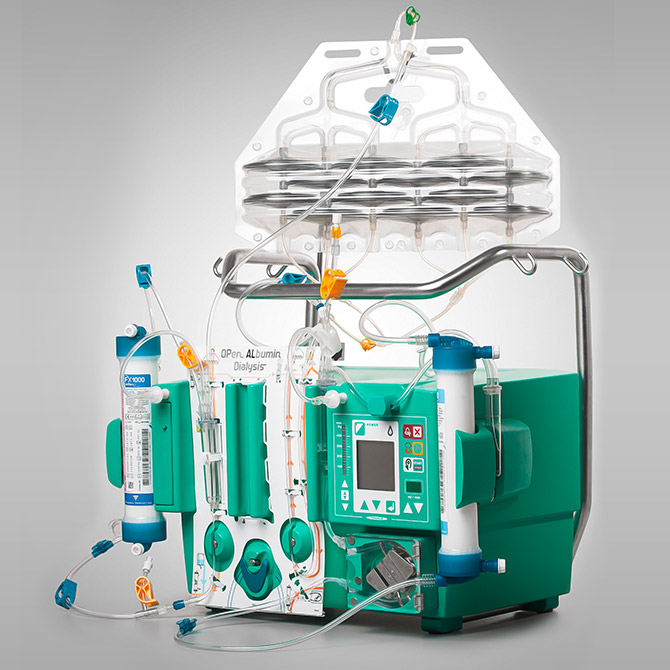Liver dialysis
People who develop liver failure usually need a liver transplant, but finding a suitable liver can be time-consuming and dangerous for the patient. Today, liver dialysis is an option to prolong your life while you search for a new liver.

What is liver dialysis?
Liver dialysis is a detoxification treatment used for liver failure. When your liver no longer works properly, toxins like bile and fatty acids build up because your failing liver can no longer clear them.
How is liver dialysis performed?
This treatment is performed with an external device that draws blood from your body through a vein in your arm, treats and cleanses it to remove toxins, then returns the blood to your body.
Unlike kidney dialysis, which can last for years, liver dialysis is considered a very temporary solution for chronic liver failure.

Types of liver dialysis
There are several liver dialysis machines that have been invented for artificial liver detoxification. Molecularly adsorbed recirculating system (MARS), single pass albumin dialysis (SPAD), and Prometheus are the most common among the different types of liver dialysis treatments.
Molecular Sediment Recovery System (MARS)
MARS, developed about 10 years ago by Teraklin AG of Germany, is recognized as the best extracorporeal liver dialysis system in the medical world. Two separate dialysis circuits are used in the MARS blood purification system. MARS is a widely used liver dialysis technique, but due to its complex technique and high cost, it is rarely used in developing countries.
Doctors consider the following factors before performing MARCH in liver patients:
1- Current liver condition
2- Possibility of cure
3- Cause of liver dysfunction
Single-pass albumin dialysis (SPAD)
SPAD is a simple method of albumin dialysis because it uses standard renal replacement therapy devices without interruption in additional perfusion pump systems such as MARS.
Prometheus
Prometheus is a new liver dialysis method in which albumin-bound substances are removed from the blood using a special adsorbent. Simultaneously, high-flux hemodialysis is performed.
Who needs liver dialysis?
As mentioned, people with liver failure may need liver dialysis. Some conditions that may require liver dialysis include:
Acute liver failure
In patients with acute liver failure, which may occur for various reasons, such as overdose of medications such as acetaminophen or alcohol consumption, liver dialysis can be used as a temporary solution until a liver transplant is available.
Liver cirrhosis
Cirrhosis of the liver is a chronic disease that gradually causes liver failure. Liver dialysis can be used to maintain coverage until a suitable transplant case is found.
Multiple polypathy
Patients with polypathy that simultaneously affects liver and kidney function can also benefit from liver dialysis

